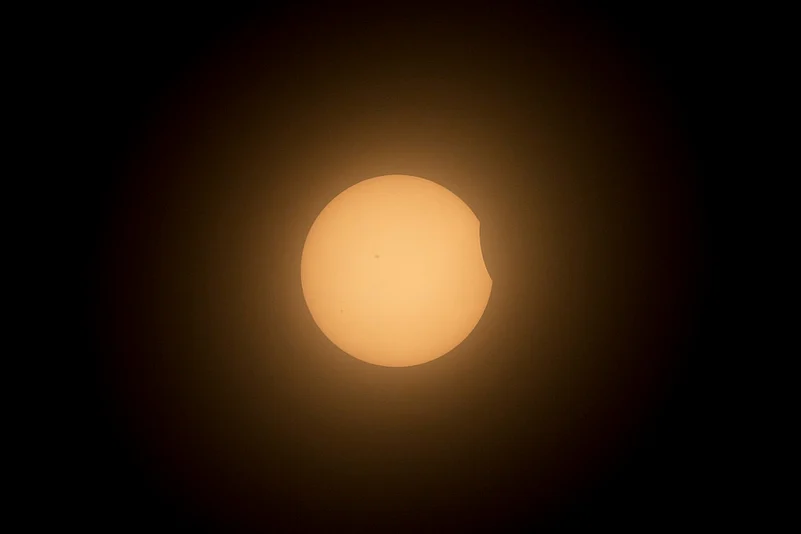If you find yourself in the vicinity of the path of totality for the upcoming solar eclipse on April 8, you should already have your arrangements in place. Lodging and other accommodations likely filled up months ago, so if you've had to travel a considerable distance, you should have your plans finalized by now.
NASA is hosting eclipse events throughout the United States. If you're keen on joining one, you can find a comprehensive list of local events on the agency's eclipse website.
Regardless of where you decide to observe the eclipse from, ensure that you bring appropriate eye protection and never look directly at the sun without it.
Maximizing Your Solar Eclipse Experience: Viewing Options and Livestreams
If you find yourself outside the path of totality, don't miss out on the opportunity to witness the partial eclipse. With the right eye protection, you can observe the moon partially covering the sun in the sky. Additionally, you can stay engaged with the event online.
NASA will be live-streaming its official coverage of the 2024 solar eclipse from 1 p.m. ET to 4 p.m. ET on Monday. The broadcast will feature expert commentary and on-location footage of the eclipse. You can tune in to NASA+ or the organization's YouTube channel to watch the event.
For those seeking a more serene viewing experience, NASA offers a telescope livestream provided by its partners and collaborators. This broadcast will showcase footage from multiple telescopes positioned along the path of totality, capturing the sun in different wavelengths of light. You can access this livestream on YouTube.
Additionally, NASA will launch three sounding rockets into the moon's shadow during the eclipse to investigate changes in the ionosphere. If you're keen on witnessing these launches from NASA's Wallops Flight Facility in Virginia, you can do so on YouTube as well.
Remember to stay safe and enjoy the celestial spectacle of the 2024 solar eclipse, whether you're observing it in person or joining the livestreams from the comfort of your home!





























